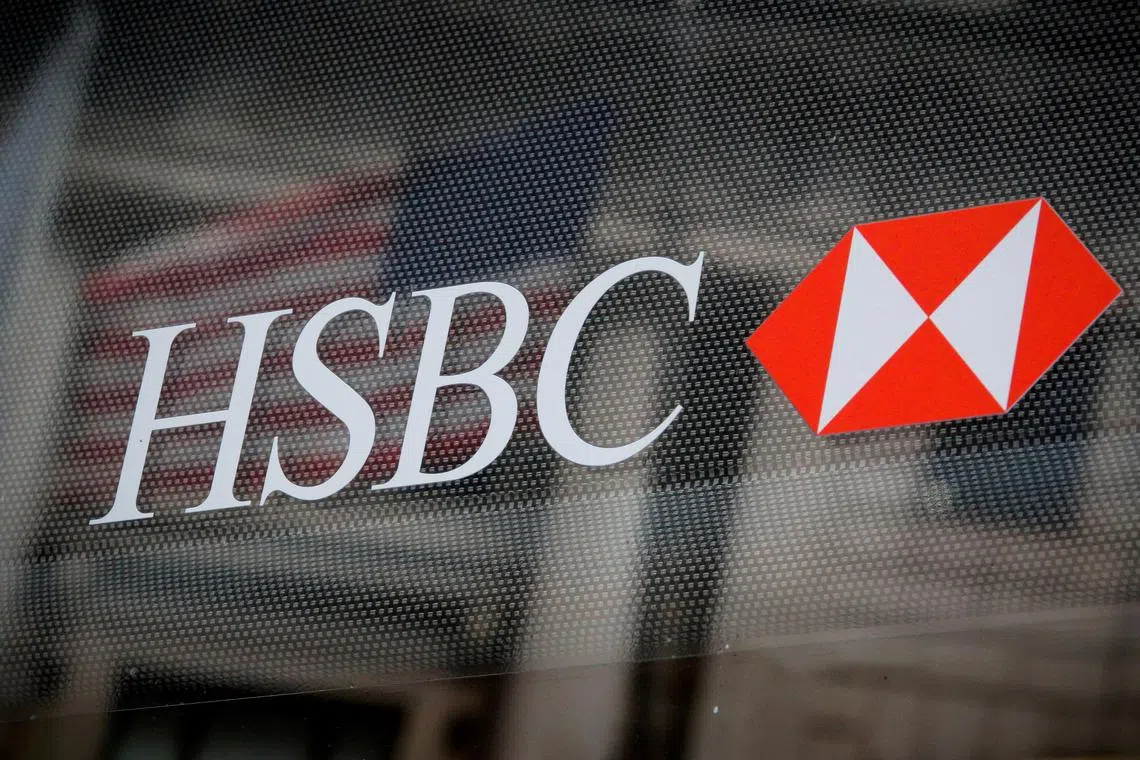HSBC signals rate rise profit windfall has peaked even as dividend payouts rise
Sign up now: Get ST's newsletters delivered to your inbox

HSBC will pay a special dividend of 21 US cents per share after fourth-quarter profit surged 92 per cent.
PHOTO: REUTERS
SINGAPORE – HSBC dampened investors’ expectations of a sustained income bonanza from rising interest rates, even after Europe’s biggest bank posted a 92 per cent surge in quarterly profit and pledged more regular dividends and share buybacks.
The London-headquartered bank said on Tuesday that it would pay a special dividend of 21 US cents per share from the proceeds of the US$10 billion (S$13.4 billion) sale of its Canada business.
But despite the payout promises, the lender’s shares fell 2 per cent in Hong Kong as investors weighed income forecasts that analysts deemed moderate against an environment of rising rates.
With its US$1.3 trillion in customer deposits, HSBC benefits more than many smaller banks from central bank hikes that enable it to charge a wider margin on its loans and mortgages.
The bank, however, said it expected net interest income to be at least US$36 billion in 2023, shy of the US$37 billion forecast and a US$38 billion annualised figure that analysts calculated from its latest quarterly numbers.
Chief executive Noel Quinn told Reuters that the conservative forecasts were partly due to pressure from competitors to raise rates on deposits, among other factors.
HSBC has been working to improve its investor relations after facing pressure from its biggest shareholder, Ping An Insurance Group, to split off its Asian business to boost returns, a strategy HSBC has rejected.
The Asia-focused bank, which counts Hong Kong as its biggest market, also said it would return to paying quarterly dividends in 2023, and would bring forward the consideration of fresh share buybacks to the first quarter of 2023.
HSBC’s conservative outlook echoed that of British rival NatWest, which warned last week that rising rates may not deliver the long-lasting earnings bonanza that investors hope for, sending its shares down nearly 10 per cent.
Mr Quinn, who has overseen a programme of job cuts in recent years aimed at stripping out layers from the bank’s bloated management structure, said more was to come. “There will be no easing off on costs... We are now considering up to US$300 million of additional costs for severance in 2023.”
HSBC also cut its annual bonus pool by 4 per cent to US$3.4 billion in 2022, after a global slump in dealmaking. Despite the overall bonus cuts for staff, Mr Quinn saw his pay package jump 14 per cent to £5.6 million (S$9 million) from £4.9 million the prior year. Once long-term incentive awards are included, Mr Quinn’s total pay could reach £10.5 million, HSBC said.
HSBC reported pre-tax earnings of US$5.2 billion for the fourth quarter, up from US$2.7 billion a year earlier and ahead of the US$4.96 billion average estimate of analysts compiled by the bank.
HSBC said annual expected credit losses rose to US$3.6 billion, more than the US$3.2 billion analysts had estimated, due to rising inflation pressuring borrowers.
But Mr Quinn said the outlook for the sector had improved in January, in part due to policy measures aimed at propping up the sector.
Annual profit fell to US$17.5 billion from US$18.9 billion for 2021, due to an impairment of US$2.4 billion related to the sale of its retail banking operations in France.
This matched the US$17.5 billion average estimate of 22 analysts compiled by the bank.
HSBC said it still expected to complete the sale of its Russia business in the first half of 2023, taking a US$300 million loss. REUTERS


